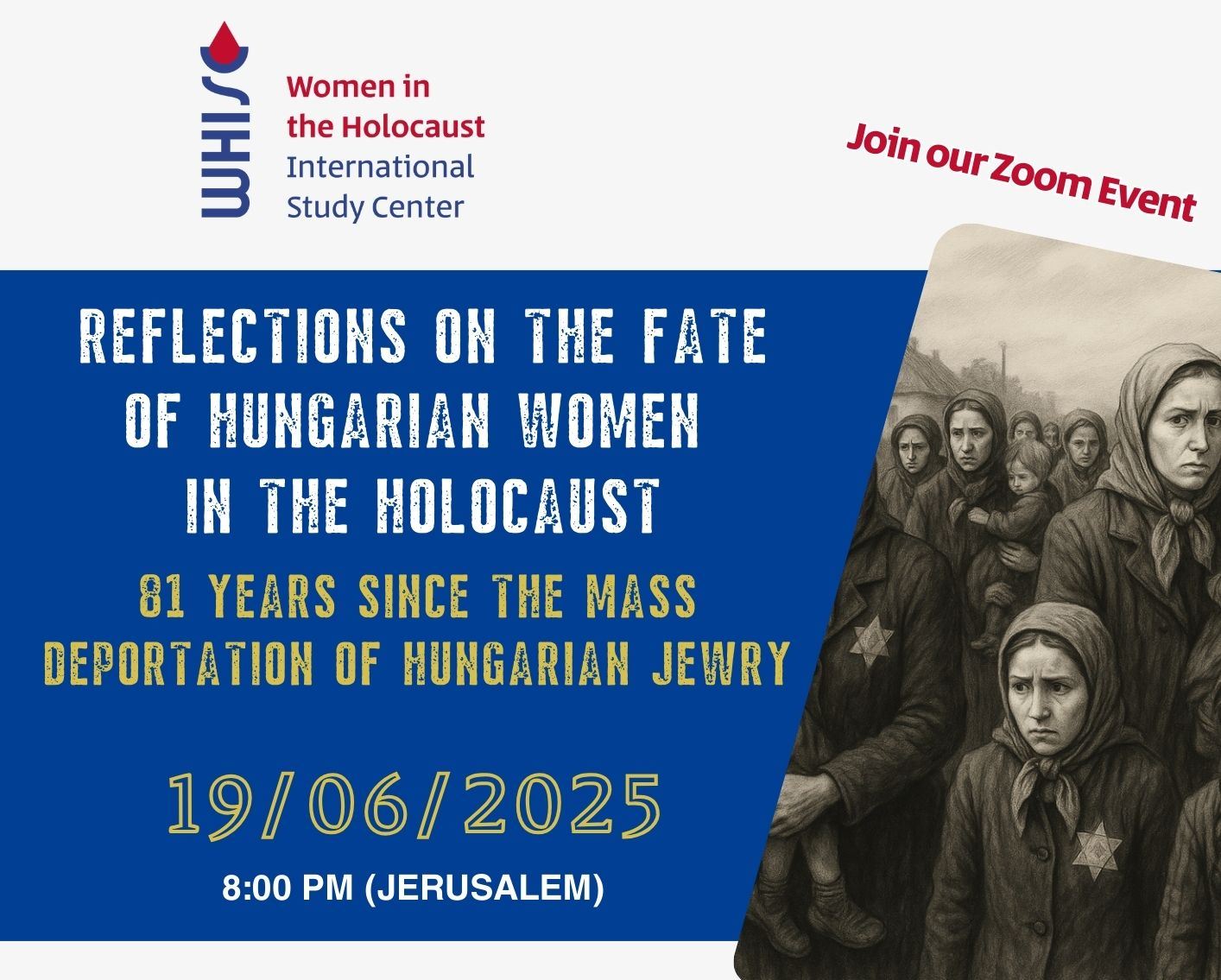
Moderator: Prof. Lily Zamir, Academic Director & Co-founder of WHISC
Opening words: The Hungarian cultural attaché, Ms. Lili Zechmeister
* Hungarian Jewish Women's Coping in the Nazi Camps and Ever After
Prof. Ilana Rosen, Ben Gurion University of the Negev
About the lecture: Hungarian Jewish women endured unimaginable hardships in the Nazi camps, facing violence, dehumanization, and the constant threat of death. Yet, many demonstrated remarkable resilience—through mutual support, spiritual resistance, and the will to survive. After liberation, their coping continued as they rebuilt shattered lives, bore witness to atrocities, and preserved memory through testimony, silence, and community rebuilding. Their strength remains a powerful testament to human endurance and the complexities of trauma and survival.
* The Women of Allendorf: Tracing Hungarian Jewish Women Deported to the Concentration Camps
Dr. Balint Barnabas, at Magdalen College, University of Oxford
About the lecture: The women of Allendorf represent a powerful chapter in the history of Hungarian Jewry during the Holocaust. Deported from their homes, these women were forced into labor and endured inhumane conditions in Nazi concentration camps. Tracing their journeys offers insight into their daily struggles, acts of solidarity, and the enduring spirit that helped many survive. Their stories, long overlooked, shed light on gendered experiences of persecution and resilience in the face of unimaginable horror.
* Prolonged Genocide: The Sterilization Abuse of Hungarian Women in Birkenau, 1944
Ms. Alexandra Szabo, PhD candidate in history at Brandeis University
About the lecture: In 1944, Hungarian Jewish women deported to Birkenau became victims not only of forced labor and extermination but also of medical abuse through coerced sterilization. Under the guise of scientific experimentation or racial hygiene, Nazi doctors violated women’s bodies in acts that extended the genocide beyond immediate murder. These abuses inflicted lasting physical and psychological trauma and serve as a stark example of the gendered dimensions of Nazi brutality. The silence that followed these crimes adds to their horror—and underscores the need for recognition and remembrance.
Zoom link will be sent upon registration.